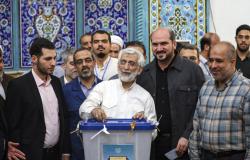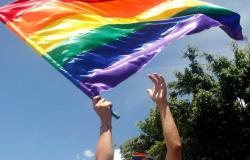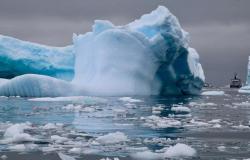Hear
MEXICO CITY.- The Ministry of the Revolutionary Armed Forces of Cuba confirmed this Thursday what they had already announced from Washington in the previous hours: A Russian naval detachment is heading towards the Caribbean Sea to arrive in Havana on Wednesday of next week. It will remain in its waters until the 17th of this month.
The detachment sent by the Kremlin, which according to US sources will continue its route to Venezuela, is made up of three warships and a nuclear-powered submarine. These are the frigate Gorshkov, the oil tanker Pashin and the rescue tug Nikolai Chiker, as well as the submarine Kazan.
“This visit corresponds to the historical friendly relations between Cuba and the Russian Federation and strictly adheres to the international regulations to which Cuba is a State party,” the Cuban Foreign Ministry justified in its statement, which assured that neither the Kazan submarine nor the ships carry nuclear weapons.
Both Cuba and Venezuela, in addition to Nicaragua, are Vladimir Putin’s great allies in the Americaswhere they also have an important propaganda and ideological apparatus that has supported the Russian invasion of Ukraine from day one.
The confirmation of the arrival of the Russian naval detachment to the Caribbean comes hours after Putin warned the West that he will respond “asymmetrically” to the supply of high-precision ammunition to Ukraine. “Why don’t we have the right to send weapons of the same type to regions of the world where sensitive facilities of countries acting against Russia will be attacked?”threatened the Russian president.
The Kremlin has insisted in recent hours that it “reserves the right to arm” Western adversaries in response to support for the kyiv government. However, the Russian president clarified that the use of nuclear weapons is only possible “in exceptional cases”, something that in his opinion has not yet emerged.
The news fell in the Americas as if it were a distant déjà-vu of the famous missile crisis, the largest of the Cold War, carried out more than six decades ago by presidents John F. Kennedy, Nikita Khrushchev and Fidel Castro, who They put the world before the worst of its nightmares. On this occasion, as confirmed Granmaofficial organ of the Communist Party of Cuba (PCC)“none of the ships carry nuclear weapons, so their stopover in our country does not represent a threat to the region.”
“The Russian flotilla does not represent any military threat to the United States, but it is part of Putin’s reaction to make credible his threats to use nuclear weapons or weapons capable of reaching Western territory,” Juan Antonio Blanco, president of the laboratory, stressed to LA NACION. of ideas Cuba 21st century.
Last February, Russian Foreign Minister Sergei Lavrov completed his ninth Cuban mini-tour in two decades to demonstrate their close alliance, just 160 kilometers from the United States. “for a fairer and more democratic multipolar world order.”
Are the already very close relations between Cuba and Russia increasing in this way? “In reality it does not represent a greater rapprochement, since the agreements, visits and diplomatic, military and security exchanges are already advanced. Visits have increased in the last five years, including high-level visits. The Cuban president, Miguel Diaz-Canel, also recently traveled to Moscow. But that does not mean that it is another step in an alliance that has been strengthened. What it does imply is the evident will to carry it out despite the sensitivity of the issue of taking a ship with nuclear capacity near the United States. It is not a new step, but rather the materialization and way of expressing their will,” historian Armando Chaguaceda, the main scholar of the Russian and Cuban revolutions on the continent, told this newspaper.
In parallel, very little is known about how the Russian plan, agreed with Havana, has progressed to design the new economic model of the island, mired in a serious social and economic crisis.. In principle, it sought to imitate the authoritarian state capitalism currently in force in Russia. A “stand by,” as economist Pavel Vidal, a former official at the Central Bank of Cuba, points out, in a project that is not moving forward but has not officially been scrapped.
What is evident at the moment is that the appearance of the Russian flotilla has nothing to do with the Missile Crisis of the last century. “On that occasion there were movements of conventional troops and 42 nuclear-capable missiles. This flotilla is a small detachment, it is not at all comparable in military terms with Operation Anadyr (the code name then used by the authorities of the Soviet Union). What it does represent is a symbolic challenge: the return of the United States’ incursion into its European ‘backyard’,” Chaguaceda added.
Moscow calls Latin America’s backyard the famous “backyard” of the United States, coined at the time to describe the continent by the ‘Monroe Doctrine’.
Another very different situation is the presence of Russian ships facing the interior of Cuba and Venezuela, which is holding presidential elections on July 28 with Nicolás Maduro far behind the opposition candidate, diplomat Edmundo González Urrutia. “It is a way to support the two allied tyrannies that are faltering, a message directed to those two peoples,” Blanco told LA NACION.
The internal dimension of both countries is key to understanding the arrival of the Russian flotilla at a very delicate moment. Venezuela is risking its future and Cuba, immersed in a social and political labyrinth, faces another summer with blackouts, without water, with food and medicine crises and the resulting protests.
“Havana has asked Putin for a Russian military presence this summer to send the message to the people of the island, more than to Washington, that the United States will not dare to come to their aid if Cuban blood is spilled in its streets.” Blanco warned this newspaper.





